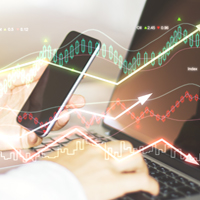 If you wonder what a Forex Trader job description is like, check out our FX Trader jobs section and be spoilt for choice. However, today we’d like to highlight the required skills you’ll find in the most frequent Forex Trader job description, to help you understand which are the most important to focus on.
If you wonder what a Forex Trader job description is like, check out our FX Trader jobs section and be spoilt for choice. However, today we’d like to highlight the required skills you’ll find in the most frequent Forex Trader job description, to help you understand which are the most important to focus on.
You’ll soon realise how your investment of time and energy in learning or improving the following skills will pay off in better trades.
- Strong analytical skills. One skill every trader needs is the ability to analyze data quickly. There is a lot of math involved in currency trading, but it is represented through charts with indicators and patterns from technical analysis. To the inexperienced eye, the data is worthless, consequently, traders need to develop their analytical skills so they can first understand the charts and develop their own technique to study the trends and patterns, presented by the charts. This is the stage of technical analysis.The better you can understand the data presented, the more effective decisions you can make, in terms of whether the trade is worth taking, or moving onto another currency pair, and analysing those. Most successful FX traders are proficient with their technical analysis, and then combine that with certain indicators, to predict a profitable trade, based on the systems they are using.
- Good Numeracy and Mathematics Abilities. If you’re trading on short-term spreads, you’ll need good mental math skills to work out your potential profits and losses. Currencies are presented to you in pairs, which can be confusing when the two numbers are presented side by side. Good math skills will let you calculate potential profits and losses faster, while also helping you work out the amount you can invest, based on your budget. That should be based on a percentage of your overall account balance, in line with your money management skills.
- Interest in finance and the financial markets to research. Traders need to have a healthy thirst for information and a desire to find all the relevant data that impacts the securities they trade. Many traders create calendars of economic releases and set announcements that have measurable effects on the financial markets. By being on top of these information sources, traders are able to react to new information as the market is still digesting it.
- Focus. The focus is a skill and it increases the more traders exercise it. Because there is so much financial information out there, traders need to be able to hone in on the important, actionable data that will affect their trades. Some traders also focus in on the types of securities they trade so they can deepen their understanding of a specific sector, industry or currency to the point where it becomes a competitive advantage against less specialized traders.
- Physical and mental stamina. A trader needs alertness and decisiveness under pressure and to control his or her emotions and stick to a trading plan and strategy. This is especially important in managing risk by using stop losses or taking profits at set points. Many strategies are designed so the trader loses a little in bad trades and systematically gains more on good trades. When traders start to get emotional about their trades – good or bad – strategy goes out the window.
- Record Keeping. One of the most important keys to trading is record keeping. If a trader records the results of his or her trades diligently, then improving is simply a matter of testing and tweaking strategies to find a successful one. It is hard to show real progress if you are not keeping accurate records.
- Excellent communication and interpersonal skills with teamworking ability.
Developing and sticking the skills outlined above, will set you in good stead to become successful in FX Trader jobs.
To take a deeper look into the matter, check:
- Forex jobs: the four most common psychological traps of beginning traders
- What is Forex Trading all about? Who trades, where, when, and why.
- How to trade currency online: basics to learn about the Forex Market
